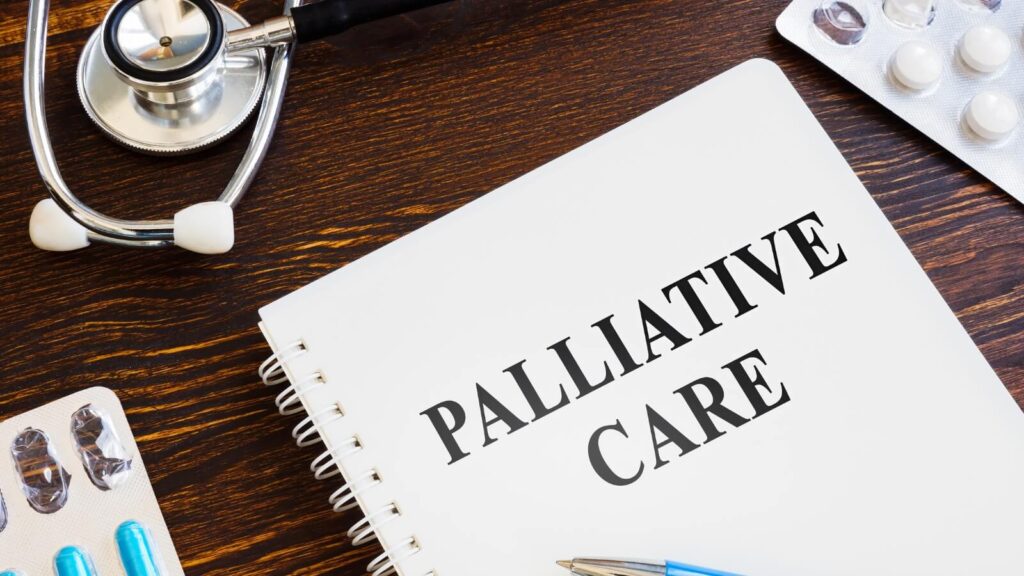
Facing a terminal illness can be one of the most difficult challenges anyone can endure. Here at Resilia, we work with many individuals and families who may be working through a terminal illness diagnosis. But what exactly does it mean to have a terminal illness? Let’s break it down in simple terms.

Being “terminally ill” refers to a diagnosis where an individual has a disease that is incurable and irreversible, and it is expected to lead to the person’s death within a short period. This prognosis is often associated with a limited life expectancy, typically less than twenty-four months.
It’s important to understand that a terminal illness doesn’t necessarily mean an immediate death sentence. Some individuals may live with a terminal illness for months or even years, while others may decline more rapidly. The prognosis varies greatly depending on the specific condition and individual factors such as overall health and access to supportive care.
Living with a terminal illness can be emotionally and physically draining, both for the individual and their loved ones. It often involves making difficult decisions about medical treatments, end-of-life care, and quality of life. It’s essential for patients to have open and honest discussions with their healthcare providers and loved ones about their wishes and preferences.
Terminal illnesses can come in many forms, including certain types of cancer, advanced heart or lung disease, neurological disorders, or conditions like advanced dementia. Each illness may have unique symptoms and challenges, but they all share the common characteristic of life-limiting. Here are some common types of terminal illnesses:

Palliative care is a specialized approach to healthcare that focuses on improving the quality of life for individuals facing serious illnesses. Its primary goal is to provide relief from the symptoms, pain, and stress associated with the illness, regardless of the stage of the disease or the prognosis.
Palliative care is led by a team of healthcare professionals, including doctors, nurses, social workers, chaplains, and other specialists, who work together to address the physical, emotional, social, and spiritual needs of patients and their families.
Palliative care is important for several reasons:

Receiving a terminal diagnosis can be an overwhelming and life-altering experience. Here are some thoughtful tips for coping with a terminal diagnosis for you or a loved one:
The last thing you should do is face this diagnosis alone. Seek outside support so that you have an open space to share your feelings, gain new valuable insights, and learn from others around you. This could include family, friends, support groups, or counselors who specialize in helping those with terminal illnesses. Ask Resilia or your healthcare provider for additional resources.
Even though life-limiting illnesses can be very difficult, there are ways to get help and comfort. Services like palliative care and hospice care are available to provide complete care that addresses the physical health, feelings, and spiritual needs of people with terminal illnesses and their families. The goal of these services is to improve quality of life, manage symptoms, and provide support during this challenging time.
You may experience a range of emotions, such as shock, anger, sadness, and acceptance. This would be a great time to learn how to acknowledge, process, and accept these emotions perhaps through mindfulness, meditation, journaling, or speaking with a mental health professional. Your feelings are valid and there are no “right” or “wrong” feelings.
Take the time to learn about your (or a loved one) diagnosis and what to expect, as understanding the situation can sometimes make it less frightening. This could include discussions on symptoms, potential treatments, and what might be involved in end-of-life care. Remember, that not every person is the same, so while learning about a diagnosis is important, learning about coping with it and improving quality of life is just as important.
Focus on the remaining quality of life and enjoy life to the fullest! Now is the perfect time to make meaningful memories together, even if it’s through simple daily interactions. A bucket list is a popular and fun idea to inspire you to try activities that bring you joy and fulfillment. Consider joining a community group or taking a class that allows for creative expression and continuous learning.
Don’t wait to get legal and financial planning in order. Although it may feel like a sad conversation to work through, getting such affairs in order can reduce stress on the individual and their families. This can include writing a will, setting up advanced care directives, and discussing wishes with family members.
If applicable, discuss exploring spiritual or religious beliefs that might provide comfort. Many find peace in connecting with their faith or exploring spiritual questions during this time.
Try to keep up a daily routine as much as possible. This can provide a sense of normalcy and control. This will be a good time to re-evaluate an altered routine based on their daily capacity and energy levels.
Come together to create a legacy project! These are projects that help leave a legacy, such as writing letters to loved ones, recording stories or life lessons, or creating art or music. These projects can provide a sense of purpose and connection.

At Resilia, we offer many products and services that are tailored toward capturing legacies and providing top-notch art therapy. Resilia’s Legacy Chronicles Activity Kit is a remarkable product designed to help you journey through the stories of your family. This kit is perfect for young adults, older adults, or even elders living with a diagnosis such as cancer or Alzheimer’s Disease. It can also be a wonderful exploration tool for anyone wishing to dive into their life legacy.
Contact Resilia today for more information on capturing family legacies or interest in art therapy! Additionally, learn more about family legacy and why it is important in our blog, “Leaving Behind a Legacy: Why It’s Important & How to Do It”.
While a terminal illness may seem daunting and overwhelming, it’s important to remember that there is still value in every moment of life. Even in the face of adversity, there can be moments of joy, love, and connection.
We use cookies to give you the best online experience. By using this website you agree with our cookie policy.